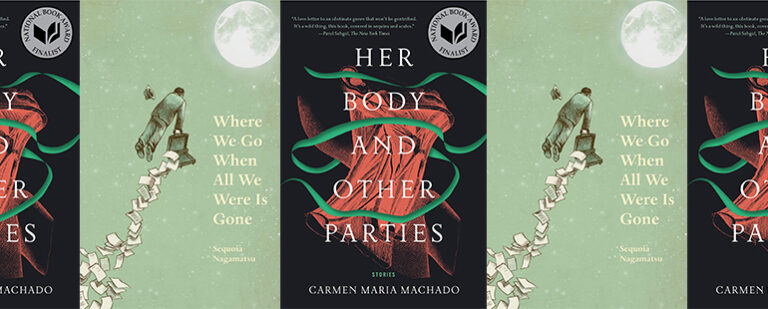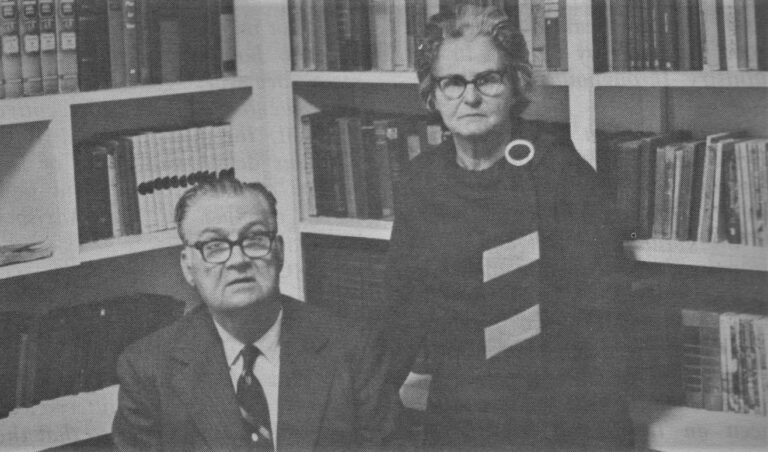The Power of Documenting Your Own Story

In Patricia Engel’s Infinite Country, out today, we follow Elena, Mauro, and their three kids, Talia, Nando, and Karina, as they are split apart between two countries, Colombia and the United States. The book is a documentation of their lives while some live undocumented, wishing for the home they were born in, or their families were born in, while others wish to be reunited within the same house, regardless of where it is. As we read, we see how undocumented peoples are being taken care of less and less, and we see the erasure of documents aiding the erasure of their stories, their culture, and any sense of home. This results in literally marginalizing people into absence. With Infinite Country, Engel shows the importance of taking back your narrative, of learning and documenting your own story for no one but yourself.
When Infinite Country starts, the family is separated in three different locations. Elena, the mother, is with two of her children, Nando and Karina, in the United States. They are living within the country with no papers. Mauro, the father, is taking care of Perla, Elena’s mother, in the house that he and Elena used to stay at in Bogotá. Talia, their daughter, is in a prison in Colombia for assaulting someone. The distance between these characters means that they all have secrets from each other, that they all have stories that aren’t being written or different versions of stories that aren’t being shared. Each of the members of the family wants to counter the stories told about them: Elena and the kids want to be seen as more than just illegal; they want to make a home for themselves. Talia wants to be more than just the headline of her most rage-filled moment, wants to build a new future not beholden to the past. Mauro wants to be more than the distant dad who failed his family. Each fights the narrative being forced onto them in order to build a story, a home, where they are together.
Talia starts the novel with her escape from prison, in which she ties up the nuns guarding her. She mentions how talking to her father on the phone for the first time in a while motivated her to break out; Mauro had said there was nothing he could do to get her free, which inspired her escape—partially because it was her only way out, but also partially cause she wanted to see her father, worrying that the memories she had of him and he of her would fade and he would be left only with the narrative that others wrote about her. Talia says the nuns “believed silence a weapon, teaching the girls that only with it could they discover the depths of their interior without being servants to the temptations of this world.” But of course, when newspapers cover Talia’s crime, when rumors spread about what she did and why she did it, that silence is used against her; a narrative is forced onto her. Talia wants to make sure her father knows her for who she is, not what is written about her.
Talia wonders early in the novel about “how people who do horrible things can be victims, and how victims can be people who do horrible things. The witnesses who spoke to reporters said it was as if a lever had been turned in the girl they’d seen around the restaurant many times before waiting for her friend.” She fantasizes about “memories she hoped to drop from the sky the minute her plane left their mountains and crossed the ocean.” She wants to make it to her dad to get an understanding of who they are as people before leaving to the United States, fleeing the country she has called home for years. She wants to leave behind the country where the only thing that is documented about her is the crimes she’s committed, the history of her levers turned.
Mauro, on the other hand, wants his family whole. He doesn’t have the roots Elena had in Colombia, having always struggled with his connection to the physical world, and was ready to create a new home with all of his family in the United States before being deported back to Colombia. He struggles badly when he returns to Colombia until Talia is sent to stay with Perla in the same city as him.
Mauro often talks about the myths of Colombia involving spirits; he wants to be more than just what is written about him on this earth. He tells the story of Chía, the guardian of the night, to Talia, and of the mythical condor, one he swears he saw in Bogotá as a kid, to Elena. Late-night when Elena and Mauro are staring up at the mountains and a bird flies by, he says it is the mythical condor again. Elena can’t believe her eyes, but Mauro has to believe. He tells her how “when a condor is old or sick, or if its mate dies, it will push itself to fly higher than ever before, then drop out of the sky to end its own life?” Mauro needs Elena to believe that she would do this for him and that he would come back for her. Mauro is adamant that the condor flew over Bogotá; he needs to believe it could come back, needs to believe that he could return to Elena.
At one point in the novel, we see “Mauro closed his eyes for a few seconds to try to trick himself, then opened them. For one suspended moment, he succeeded. There was his own family seated at the table.” Mauro needs to dream his own myth. He needs the stories he tells to be real in order to make a home out of them. Mauro believes in these myths and dreams because the physical world hasn’t treated him well. He “feared losing the house would make the family even more rootless; without it and with her mother already gone, once Talia joined Elena in the United States, there would be nothing left for her in Colombia.” Mauro needs these stories to be real in this world so that he can have something to hold onto with Elena, something they can make a home out of.
For Elena, Nando, and Karina, the challenges are different. It isn’t what is written about them that is weaponized against them, marginalizing them—it’s what isn’t written. They have no documents supporting their United States’ citizenship, and therefore they are treated as less than human. Elena isn’t able to visit Mauro when he is in detention, and when she is pregnant, Mauro doesn’t stick around during the birth of his “American” born children—he is afraid of being discovered and deported in the hospital. This dehumanization makes Elena feel even more disconnected from the idea of having a home in this world. The United States never wants to accept her, and she is more afraid there than she was in Colombia during La Violencia. That distance, of not being comfortable in her own country, of being away from her mother, makes her feel out of place anywhere she goes—especially as she births and raises children in the States.
Elena says she remembers a story Perla told her, about a mother and daughter who were killed. The daughter makes it to heaven early, having been saved by living a shorter and purer life, and tries to help the mother get to heaven with her. When they get reunited, Perla tells Elena that “The mother thought her daughter had saved her from languishing in the void . . . She didn’t know she’d already been purified, that her daughter was only waiting until it was the mother’s turn to be called home.” Elena wants that home but isn’t sure if she should be reaching to pull her mother with her, or waiting for her kids to pull her to a home.
While the family doesn’t get legal U.S. citizenship, the book acts as a record of the myths and the trials and tribulations and fears they all braved while trying to get into the same house once again. The document is their attempt at taking control of their own narrative, of fighting to stay close to each other, of making their memories and tragedies and myths a little more real, a little more solid.
Near the end of the book, one of the characters says, “I’ve had borders drawn around me all my life, but I refuse to live as a bordered person. I hate the term undocumented. It implies [we] don’t exist without a paper trail.” In the acknowledgments, Engel writes, “To the families who see aspects of their experiences reflected in these pages: You are my heroes. I wrote this book for you. To victims and survivors of every kind of violence, and to the displaced and the disappeared: I carry you in my heart.” The people in this story are fictional, but so is the idea that papers make a person human. Engel’s characters all fight to be together, to change the narratives that outsiders have written about them, and to make a home in the United States, no matter how undeserving we are as a country to house their love. As a country, we have the chance to write our own narratives too. But we must, too, wonder what will be written, in documents and stories that are all very real, about us if we keep splitting families apart.


